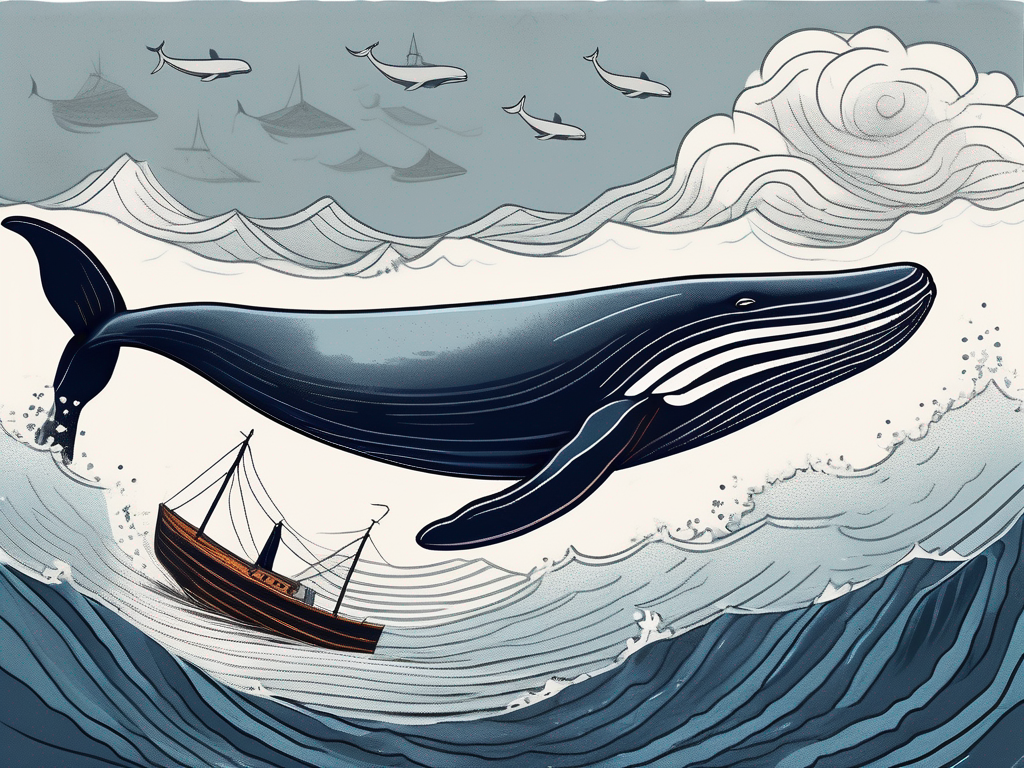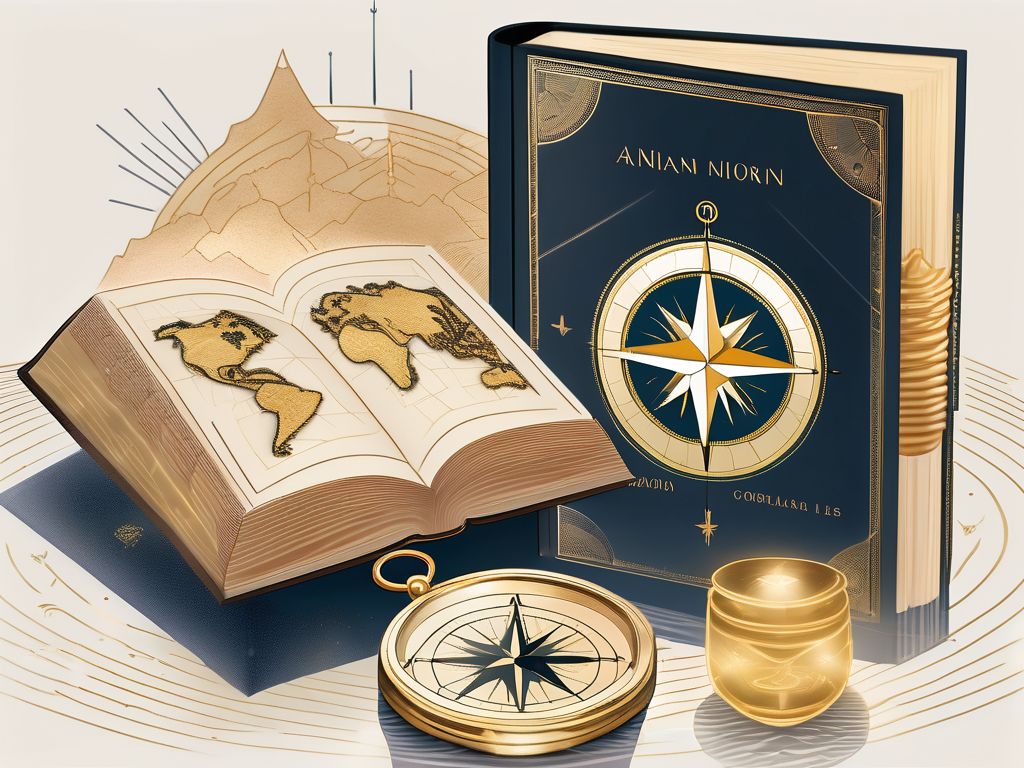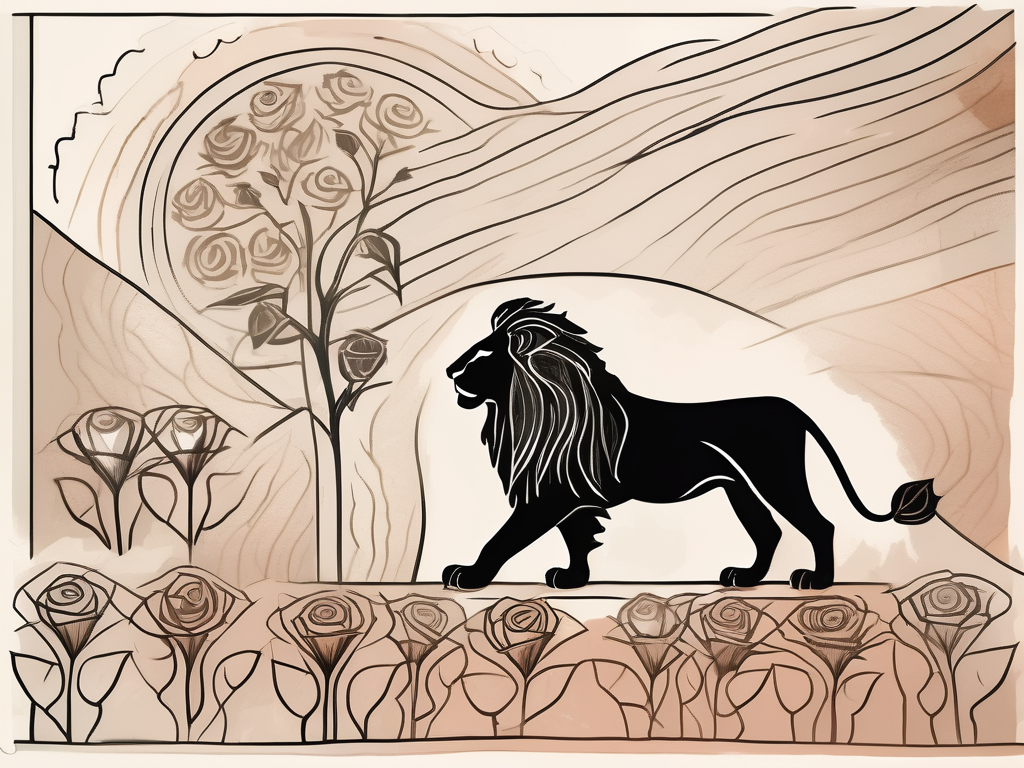Jonah, a prophet in the Bible, is known for his incredible journey and the lessons his story teaches us. In this article, we will dive into the depths of Jonah’s narrative, examining its context, themes, and controversies. We will also explore the impact his story has on modern faith and popular culture.
Understanding the Context of Jonah’s Story
Judging a story without understanding its context is like examining a painting without knowing the artist. Therefore, let’s start by delving into the historical background of the Book of Jonah. This will give us a better grasp of the message the author intended to convey.
The Historical Background of the Book of Jonah
The Book of Jonah is believed to have been written in the 8th century BC, during the reign of King Jeroboam II. It was a time when the Assyrian Empire was expanding its territories, causing great distress to neighboring nations, including Israel. The Assyrians were known for their brutal conquests and ruthless treatment of conquered peoples. The historical backdrop of Jonah’s story helps us appreciate the significance of his mission to Nineveh, the capital of Assyria.
As Jonah embarked on his journey to Nineveh, he carried with him the weight of his own nation’s suffering at the hands of the Assyrians. It is within this context that we can understand Jonah’s initial reluctance to fulfill God’s command. His fear and resentment towards the Assyrians were deeply rooted in the historical trauma experienced by his people.
However, the story of Jonah goes beyond mere historical context. It is a timeless tale that explores universal themes of human nature, faith, and divine intervention.
The Theological Themes in Jonah’s Story
Beneath the surface of Jonah’s adventurous tale lies a treasure trove of theological themes. One prominent theme is the concept of God’s mercy and repentance. By examining Jonah’s initial resistance and eventual submission, we can reflect on our own response to God’s calling and the importance of repenting when we are in the wrong.
Jonah’s journey to Nineveh serves as a powerful reminder that God’s mercy extends to all, even those we may consider unworthy or our enemies. It challenges us to examine our own prejudices and biases, and to embrace the idea that redemption is possible for everyone.
Another theme that emerges from Jonah’s story is the idea of divine intervention. Throughout the narrative, we witness God’s hand orchestrating events in remarkable ways. From the storm that threatened to engulf Jonah’s ship to the miraculous survival of Jonah inside the belly of a great fish, divine intervention is a recurring motif in the story.
This raises questions about the extent of human free will and God’s sovereignty. Can we truly resist God’s calling, or are we ultimately subject to His divine plan? Exploring these themes invites us to ponder the mysteries of faith and grapple with the tension between our own agency and God’s providence.
Moreover, Jonah’s story serves as a cautionary tale about the dangers of pride and self-righteousness. Jonah’s initial refusal to deliver God’s message to Nineveh stemmed from his belief that the Assyrians did not deserve God’s mercy. It is a stark reminder that our own judgments and prejudices can hinder us from fully embracing God’s grace and love for all humanity.
In conclusion, the historical and theological context of Jonah’s story enriches our understanding of this ancient text. It reminds us that the lessons embedded within its narrative are as relevant today as they were thousands of years ago. By immersing ourselves in the world of Jonah, we can gain valuable insights into our own lives and deepen our relationship with God.
A Detailed Look at Jonah’s Journey
Now, let’s embark on a detailed exploration of Jonah’s journey. From his initial call and resistance to his miraculous survival inside a fish’s belly, there are many intriguing aspects to uncover.
Jonah’s Call and Initial Resistance
In the beginning, Jonah receives a divine call to go to Nineveh and deliver a message of impending destruction. However, rather than obeying God, Jonah flees in the opposite direction. This raises questions about his motivations and highlights the struggles we sometimes face when asked to step out of our comfort zones.
As Jonah sets sail in the opposite direction, we can imagine the waves crashing against the boat, the wind howling in his ears, and the tumultuous storm that ensues. The chaos of the storm mirrors the turmoil within Jonah’s heart as he grapples with his disobedience. It is a reminder that our actions have consequences, and sometimes, we must confront the storms we create.
Despite his attempts to escape, Jonah’s journey takes an unexpected turn when he is thrown overboard by the desperate sailors. As he plunges into the churning sea, we can almost feel the icy water enveloping him, the darkness swallowing him whole. It is in this moment of despair that Jonah’s true transformation begins.
Jonah’s Experience Inside the Fish
The part of Jonah’s story that captivates many imaginations is his encounter with a great fish. Jonah finds himself trapped inside the belly of this creature for three days and nights. Reflecting on this miraculous event, we are reminded of the power of divine rescue and the potential for transformation even in the darkest of circumstances.
Inside the fish’s belly, Jonah is surrounded by darkness, the pungent smell of stomach acid filling his nostrils. The rhythmic pulsations of the fish’s heartbeat reverberate through his body, reminding him of the precariousness of his situation. It is in this confined space that Jonah is forced to confront his own fears, regrets, and the consequences of his disobedience.
As the days pass, Jonah’s perspective begins to shift. He finds solace in prayer, seeking forgiveness and guidance. The walls of the fish’s belly become a sanctuary, a place of reflection and repentance. It is in this unlikely refuge that Jonah experiences a profound spiritual awakening, realizing the importance of obedience and the boundless mercy of God.
Jonah’s Prophetic Mission in Nineveh
After his reluctant sojourn in the fish, Jonah finally makes his way to Nineveh and delivers the message of impending doom. To his surprise, the Ninevites immediately repent, prompting God to show them mercy and spare their city. This part of Jonah’s story presents us with thought-provoking questions about the nature of mercy, forgiveness, and the capacity for change.
As Jonah walks through the streets of Nineveh, his voice echoes with urgency and conviction. The Ninevites, a people known for their wickedness, listen intently to his words. We can imagine the crowds gathering, the atmosphere heavy with anticipation and dread. It is in this pivotal moment that the power of Jonah’s prophetic message becomes evident.
As the Ninevites repent, we witness the transformative power of genuine remorse and the potential for redemption. The city, once destined for destruction, is now granted a second chance. Jonah’s journey serves as a reminder that even in the face of impending doom, there is always hope for a brighter future.
Interpreting the Significance of Jonah’s Story
Jonah’s story offers rich insights into various theological and moral dimensions. By examining its significance, we can deepen our understanding of faith and its implications in our lives.
The story of Jonah is not merely a historical account but a profound narrative that speaks to the human condition. It invites us to reflect on our own lives and consider the ways in which we may be running away from our responsibilities and purpose, much like Jonah did when he tried to flee from God’s command.
One crucial aspect of Jonah’s story is the intertwined themes of repentance and mercy. The Ninevites’ repentance leads to God’s forgiveness and the salvation of their city. This challenges us to reflect on our own need for repentance, as well as our capacity to extend mercy to others.
Repentance, in the context of Jonah’s story, goes beyond mere remorse for past actions. It involves a genuine change of heart and a turning away from destructive behaviors. The Ninevites’ response serves as a reminder that it is never too late to seek forgiveness and make amends.
Moreover, the story highlights the transformative power of mercy. God’s willingness to forgive the Ninevites demonstrates the boundless nature of divine mercy. It prompts us to examine our own attitudes towards forgiveness and consider whether we are extending mercy to those who may have wronged us.
The Concept of Divine Intervention
Jonah’s encounters with divine intervention raise fundamental questions about the extent of God’s involvement in human affairs. Are events predetermined, or does God respond to our choices? Exploring these questions helps us navigate the complexities of faith and our relationship with the divine.
When Jonah was swallowed by the great fish, it was a clear manifestation of divine intervention. It reminds us that God has the power to disrupt our plans and redirect our paths. This challenges us to reconsider our own desires and ambitions, and to align them with God’s will.
At the same time, the story of Jonah also presents us with the concept of free will. Despite God’s intervention, Jonah had the choice to obey or disobey. This raises the question of whether our actions and decisions are solely determined by God’s will or if we have the freedom to shape our own destinies.
Reflecting on the concept of divine intervention invites us to grapple with the mystery of God’s sovereignty and human agency. It encourages us to seek a balance between surrendering to God’s guidance and taking responsibility for our choices.
In conclusion, Jonah’s story is a treasure trove of theological and moral insights. It challenges us to examine our own lives, confront our need for repentance, and extend mercy to others. It also prompts us to explore the complexities of divine intervention and human agency. By delving deeper into the significance of Jonah’s story, we can gain a deeper understanding of faith and its implications in our lives.
Controversies and Debates Surrounding the Story of Jonah
As with any ancient text, Jonah’s story is not without its share of controversies and debates. Many of these revolve around the interpretation of the narrative and its literal or symbolic nature.
One of the main points of contention among scholars is the literal versus symbolic interpretation of Jonah’s story. Some argue for a literal reading, viewing it as a historical account of a miraculous sequence of events. According to this perspective, Jonah was a real prophet who was swallowed by a giant fish and later spat out onto dry land. The story is seen as a testament to the power of God and His ability to intervene in the lives of His chosen people.
On the other hand, there are those who propose a symbolic interpretation of Jonah’s story. They suggest that the events described in the narrative are not meant to be taken literally, but rather convey deeper spiritual truths. According to this view, Jonah represents the human struggle with obedience and the consequences of running away from God’s calling. The fish symbolizes a place of isolation and introspection, where Jonah is forced to confront his own shortcomings and ultimately find redemption.
These differing interpretations have sparked lively debates among scholars and theologians. While some firmly adhere to one perspective or the other, many recognize the value in exploring both. Approaching the story of Jonah with an open mind and a willingness to learn from differing perspectives can enrich our understanding of the text and deepen our faith.
The Moral Implications of Jonah’s Actions
Jonah’s actions during his journey raise ethical questions that continue to be debated. Did his initial resistance to God’s command to go to Nineveh stem from a lack of compassion for the people living there? Some argue that Jonah’s reluctance to deliver God’s message was rooted in his disdain for the Ninevites, who were known for their wickedness. Others suggest that Jonah’s resistance was driven by fear or a sense of inadequacy.
These moral dilemmas invite us to examine our own choices and motivations. Are there times when we, like Jonah, struggle with showing compassion to those we perceive as undeserving? Do we allow fear or feelings of inadequacy to hinder us from fulfilling our own callings? Jonah’s story serves as a reminder that we are all fallible and in need of God’s grace.
Reflecting on the moral implications of Jonah’s actions can lead us to a place of introspection and humility. It encourages us to evaluate our own attitudes and behaviors, and to strive for a deeper understanding of God’s love and mercy. By grappling with these ethical questions, we can grow in our faith and become more compassionate and obedient followers of Christ.
The Impact of Jonah’s Story on Modern Faith
Despite being an ancient tale, Jonah’s story continues to resonate with modern believers. Let’s explore how it inspires and challenges us in our faith journeys today.
Lessons from Jonah’s Story for Contemporary Believers
Jonah’s experiences serve as valuable lessons for us. His initial resistance reminds us of the dangers of stubbornness and disobedience to God’s calling. Conversely, his eventual submission highlights the rewards of surrender and the transformation it can bring.
The Story of Jonah in Popular Culture
Jonah’s story has not only influenced theology but also permeated popular culture. From children’s books to movies and music, references to Jonah abound. Exploring these adaptations can provide a fresh perspective on the enduring influence of his narrative.
Conclusion
In conclusion, the story of Jonah offers a captivating journey that combines historical significance with theological and moral lessons. By diving into the depths of his narrative, we gain insights into the nature of repentance, divine intervention, and our own human struggles. Despite the controversies surrounding his story, Jonah continues to inspire and challenge believers today. As we explore the impact of his tale on our modern faith and popular culture, we find ourselves immersed in a timeless narrative that speaks to the depths of our souls.












